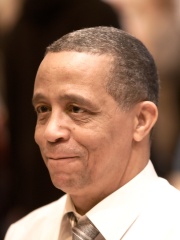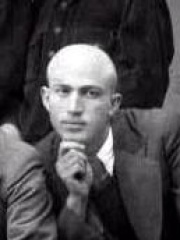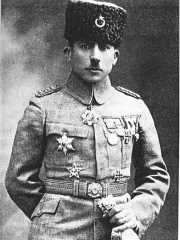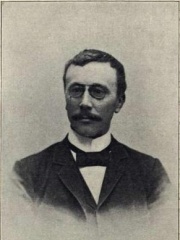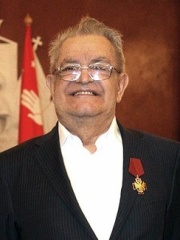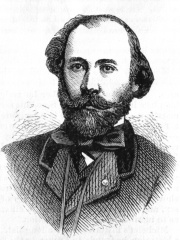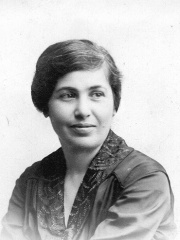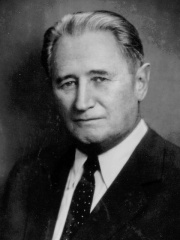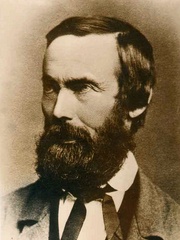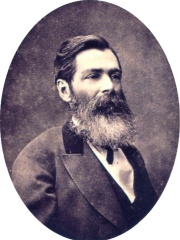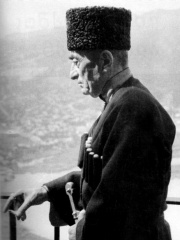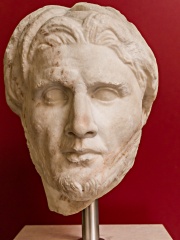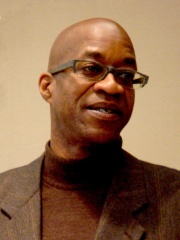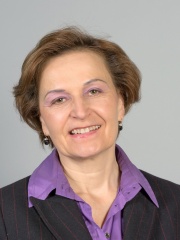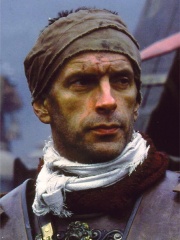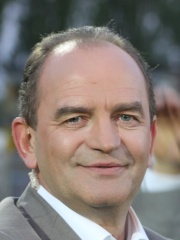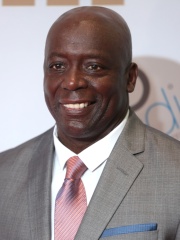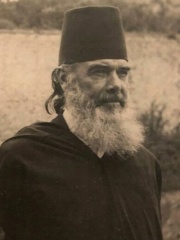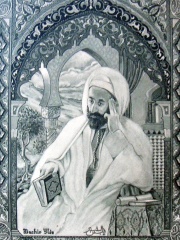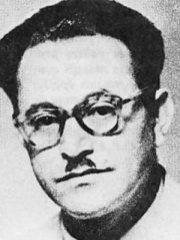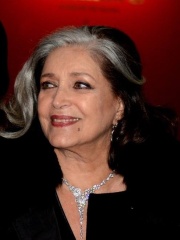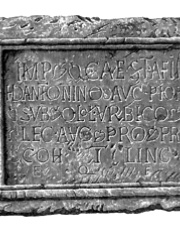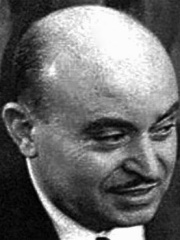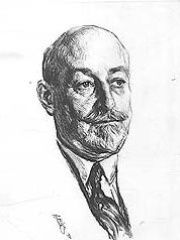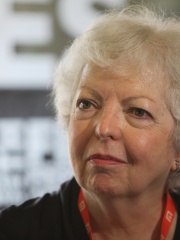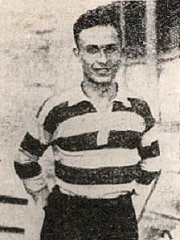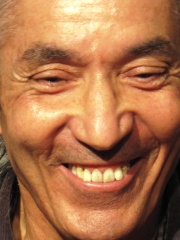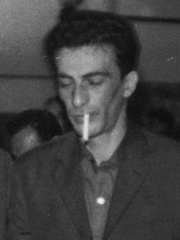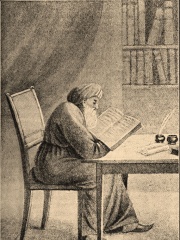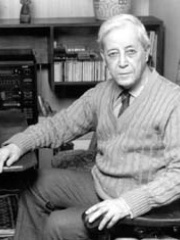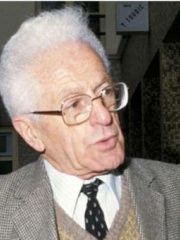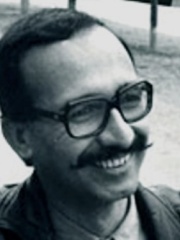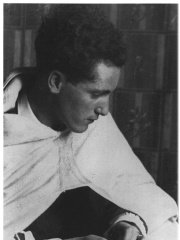WRITER
Yasmina Khadra
1955 - Today
 Yasmina Khadra
Yasmina Khadra
Mohammed Moulessehoul (Arabic: محمد مولسهول; born 10 January 1955), better known by the pen name Yasmina Khadra (Arabic: ياسمينة خضراء), is an Algerian author living in France, who writes in French. One of the most famous Algerian novelists in the world, he has written almost 40 novels, and has published in more than 50 countries. Khadra has often explored Algerian and other Arab countries' civil wars, depicting Muslim conflicts and reality, the attraction of radical Islamism to those alienated by the incompetence and hypocrisy of politicians, and conflicts between East and West. In his several writings on the Algerian war, he has exposed the regime and the fundamentalist opposition as the joint guilty parties in the country's tragedy. Read more on Wikipedia
His biography is available in 32 different languages on Wikipedia (up from 31 in 2024). Yasmina Khadra is the 3,003rd most popular writer (up from 3,160th in 2024), the 87th most popular biography from Algeria (up from 94th in 2019) and the 14th most popular Algerian Writer.
Memorability Metrics
Page views of Yasmina Khadra by language
Among WRITERS
Among writers, Yasmina Khadra ranks 3,003 out of 7,302. Before him are Grigol Abashidze, Rafael de Nogales Méndez, Terentianus, Hans Aanrud, Fazil Iskander, and Octave Feuillet. After him are Zabel Yesayan, Nahum Goldmann, Aasmund Olavsson Vinje, José de Alencar, Konstantine Gamsakhurdia, and Diphilus.
Most Popular Writers in Wikipedia
Go to all RankingsGrigol Abashidze
1914 - 1994
HPI: 60.38
Rank: 2,997
Rafael de Nogales Méndez
1879 - 1937
HPI: 60.37
Rank: 2,998
Terentianus
150 - Present
HPI: 60.37
Rank: 2,999
Hans Aanrud
1863 - 1953
HPI: 60.37
Rank: 3,000
Fazil Iskander
1929 - 2016
HPI: 60.36
Rank: 3,001
Octave Feuillet
1821 - 1890
HPI: 60.36
Rank: 3,002
Yasmina Khadra
1955 - Present
HPI: 60.36
Rank: 3,003
Zabel Yesayan
1878 - 1943
HPI: 60.36
Rank: 3,004
Nahum Goldmann
1895 - 1982
HPI: 60.36
Rank: 3,005
Aasmund Olavsson Vinje
1818 - 1870
HPI: 60.35
Rank: 3,006
José de Alencar
1829 - 1877
HPI: 60.35
Rank: 3,007
Konstantine Gamsakhurdia
1893 - 1975
HPI: 60.35
Rank: 3,008
Diphilus
350 BC - 400 BC
HPI: 60.34
Rank: 3,009
Contemporaries
Among people born in 1955, Yasmina Khadra ranks 173. Before him are Alberto Tarantini, Edwin Moses, Judy Davis, Anneli Jäätteenmäki, Thomas Newman, and Tomas Arana. After him are Sándor Puhl, Takayoshi Yamano, Wayne Knight, Herbert Prohaska, Billy Blanks, and Katsuyuki Kawachi.
Others Born in 1955
Go to all RankingsAlberto Tarantini
SOCCER PLAYER
1955 - Present
HPI: 60.87
Rank: 167
Edwin Moses
ATHLETE
1955 - Present
HPI: 60.77
Rank: 168
Judy Davis
ACTOR
1955 - Present
HPI: 60.67
Rank: 169
Anneli Jäätteenmäki
POLITICIAN
1955 - Present
HPI: 60.51
Rank: 170
Thomas Newman
COMPOSER
1955 - Present
HPI: 60.47
Rank: 171
Tomas Arana
ACTOR
1955 - Present
HPI: 60.43
Rank: 172
Yasmina Khadra
WRITER
1955 - Present
HPI: 60.36
Rank: 173
Sándor Puhl
REFEREE
1955 - 2021
HPI: 60.35
Rank: 174
Takayoshi Yamano
SOCCER PLAYER
1955 - Present
HPI: 60.34
Rank: 175
Wayne Knight
ACTOR
1955 - Present
HPI: 60.32
Rank: 176
Herbert Prohaska
SOCCER PLAYER
1955 - Present
HPI: 60.31
Rank: 177
Billy Blanks
MARTIAL ARTS
1955 - Present
HPI: 60.30
Rank: 178
Katsuyuki Kawachi
SOCCER PLAYER
1955 - Present
HPI: 60.23
Rank: 179
In Algeria
Among people born in Algeria, Yasmina Khadra ranks 87 out of 213. Before him are Messali Hadj (1898), Albert Soboul (1914), Abdelhamid Ben Badis (1889), Mouloud Feraoun (1913), Françoise Fabian (1933), and Quintus Lollius Urbicus (150). After him are Abderrahmane Farès (1911), Fernand Bouisson (1874), Thelma Schoonmaker (1940), Alain Chabat (1958), Ahmed Mohammed al-Maqqari (1578), and Alexandre Villaplane (1905).
Others born in Algeria
Go to all RankingsMessali Hadj
POLITICIAN
1898 - 1974
HPI: 60.86
Rank: 81
Albert Soboul
HISTORIAN
1914 - 1982
HPI: 60.67
Rank: 82
Abdelhamid Ben Badis
RELIGIOUS FIGURE
1889 - 1940
HPI: 60.56
Rank: 83
Mouloud Feraoun
WRITER
1913 - 1962
HPI: 60.53
Rank: 84
Françoise Fabian
ACTOR
1933 - Present
HPI: 60.49
Rank: 85
Quintus Lollius Urbicus
POLITICIAN
150 - 160
HPI: 60.36
Rank: 86
Yasmina Khadra
WRITER
1955 - Present
HPI: 60.36
Rank: 87
Abderrahmane Farès
POLITICIAN
1911 - 1991
HPI: 60.24
Rank: 88
Fernand Bouisson
POLITICIAN
1874 - 1959
HPI: 60.05
Rank: 89
Thelma Schoonmaker
FILM DIRECTOR
1940 - Present
HPI: 59.99
Rank: 90
Alain Chabat
ACTOR
1958 - Present
HPI: 59.77
Rank: 91
Ahmed Mohammed al-Maqqari
WRITER
1578 - 1632
HPI: 59.72
Rank: 92
Alexandre Villaplane
SOCCER PLAYER
1905 - 1944
HPI: 59.69
Rank: 93
Among WRITERS In Algeria
Among writers born in Algeria, Yasmina Khadra ranks 14. Before him are Boualem Sansal (1949), Kateb Yacine (1929), Al-Busiri (1213), Isaac Alfasi (1013), Mohammed Dib (1920), and Mouloud Feraoun (1913). After him are Ahmed Mohammed al-Maqqari (1578), Mouloud Mammeri (1917), Emmanuel Roblès (1914), Tahar Djaout (1954), Jean Amrouche (1906), and Jules Roy (1907).
Boualem Sansal
1949 - Present
HPI: 64.62
Rank: 8
Kateb Yacine
1929 - 1989
HPI: 63.11
Rank: 9
Al-Busiri
1213 - 1294
HPI: 62.37
Rank: 10
Isaac Alfasi
1013 - 1103
HPI: 61.99
Rank: 11
Mohammed Dib
1920 - 2003
HPI: 61.69
Rank: 12
Mouloud Feraoun
1913 - 1962
HPI: 60.53
Rank: 13
Yasmina Khadra
1955 - Present
HPI: 60.36
Rank: 14
Ahmed Mohammed al-Maqqari
1578 - 1632
HPI: 59.72
Rank: 15
Mouloud Mammeri
1917 - 1989
HPI: 59.28
Rank: 16
Emmanuel Roblès
1914 - 1995
HPI: 57.33
Rank: 17
Tahar Djaout
1954 - 1993
HPI: 56.38
Rank: 18
Jean Amrouche
1906 - 1962
HPI: 54.66
Rank: 19
Jules Roy
1907 - 2000
HPI: 52.94
Rank: 20
